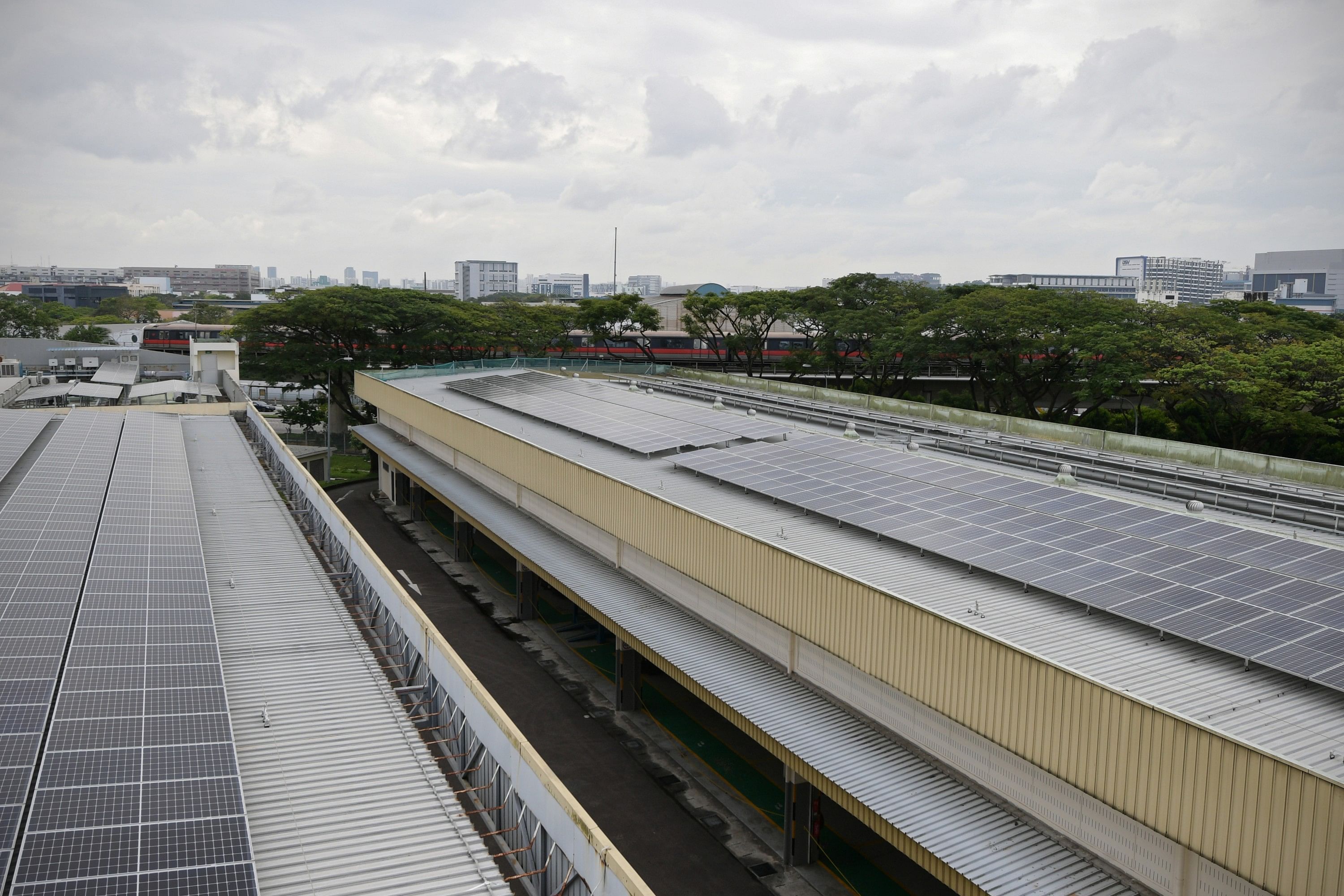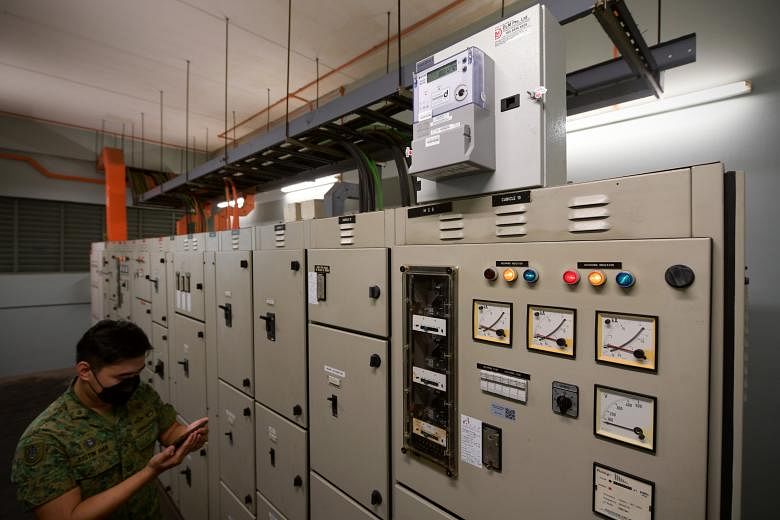SINGAPORE - The Singapore Armed Forces (SAF) is piloting the use of more than 300 smart meters at three camps to provide hourly updates of water and electricity usage.
The aim is to provide more specific data so that commanders and soldiers can take action to reduce energy consumption, including by encouraging friendly competition between units in the future.
The trial is expected to take one to two years, with its completion slated for 2023 before full-scale roll-out across all camps. The meters will be installed at Jurong Camp, Paya Lebar Airbase and Changi Naval Base by April.
The hope for the project is to spur a "cultural shift" towards greater ownership of sustainability efforts, said SAF's chief sustainability officer, Brigadier-General (BG) Kelvin Fan.
"We believe that by smart meters giving data... to the ground commanders and unit personnel, we give them greater awareness. They can then be empowered to take ground actions that actually matter and can actually be measured," he said at a media briefing at Jurong Camp on Tuesday (March 1).
The pilot programme is part of the SAF's drive to reduce the growth of overall carbon emissions by two-thirds by 2030. It also aims to reduce water consumption by 10 per cent and waste generation by 30 per cent by 2030.
Defence Minister Ng Eng Hen spoke about the SAF's efforts to achieve these goals during the debate on his ministry's budget in Parliament on Wednesday.
BG Fan, 42, who is also chief of staff-joint staff, heads the SAF Sustainability Office, which was set up in 2021 to drive the planning and compliance of the SAF's sustainability efforts.
On Tuesday, BG Fan shared other updates, such as the setting-up of an external advisory panel for environmental sustainability in February and ramping up solar panel deployment in camps by 2025.
The external panel comprises 13 people with diverse expertise from areas such as industry, academia and public service. It is headed by Professor Tan Thiam Soon, a civil engineer who is Institute Professor at the Singapore Institute of Technology.
The panel is meant to provide assessments and recommendations on Mindef and SAF sustainability policies, as well as share knowledge on the latest developments, technologies and best practices.
The plan is to meet every three months, said BG Fan.
As for solar panels, the Ministry of Defence said that by 2022, about one in four SAF camps will be installed with them. These will deliver 20 megawatt-peak of electricity, equivalent to the power consumption of about 5,000 four-room households.
By 2025, two in three camps will have solar panels generating 50 megawatt-peak of electricity, added Mindef.
The conversion of the SAF's fleet of administrative vehicles to electric ones will start this year.
Charging stations will be built at Kranji Camp III and Gombak Base as part of implementation trials, with the aim to replace the entire administrative fleet by 2030.

Announced in 2021, the smart meters are plugged into water pipes and electricity circuit boards, so that data can be sent to a centralised dashboard.
Before this, electricity and water consumption data was available at the camp level and only on a monthly basis.
The three camps were chosen because they are representative camps and bases for each of the army, navy, and the air force, said BG Fan. They also have a good mix of buildings for different uses, such as accommodation or storage.
Ms Jolene Chung, who is deputy head for sustainability strategy with the Defence Science and Technology Agency (DSTA), said data analytics is used to identify anomalies and trends in usage.
The data collected can also be used to set targets for units to work towards, said Ms Chung, who is with the DSTA's Building and Infrastructure Programme Centre.
Lieutenant-Colonel Quek Shi Jian, who is head of logistics at the army's 3rd Division based in Jurong Camp, said soldiers have been more conscious of their utility usage since the smart meters were introduced.
"Our camp commanders have also been proactively monitoring usage patterns to study consumption behaviours in hopes of encouraging good and sustainable habits among servicemen," he added.


